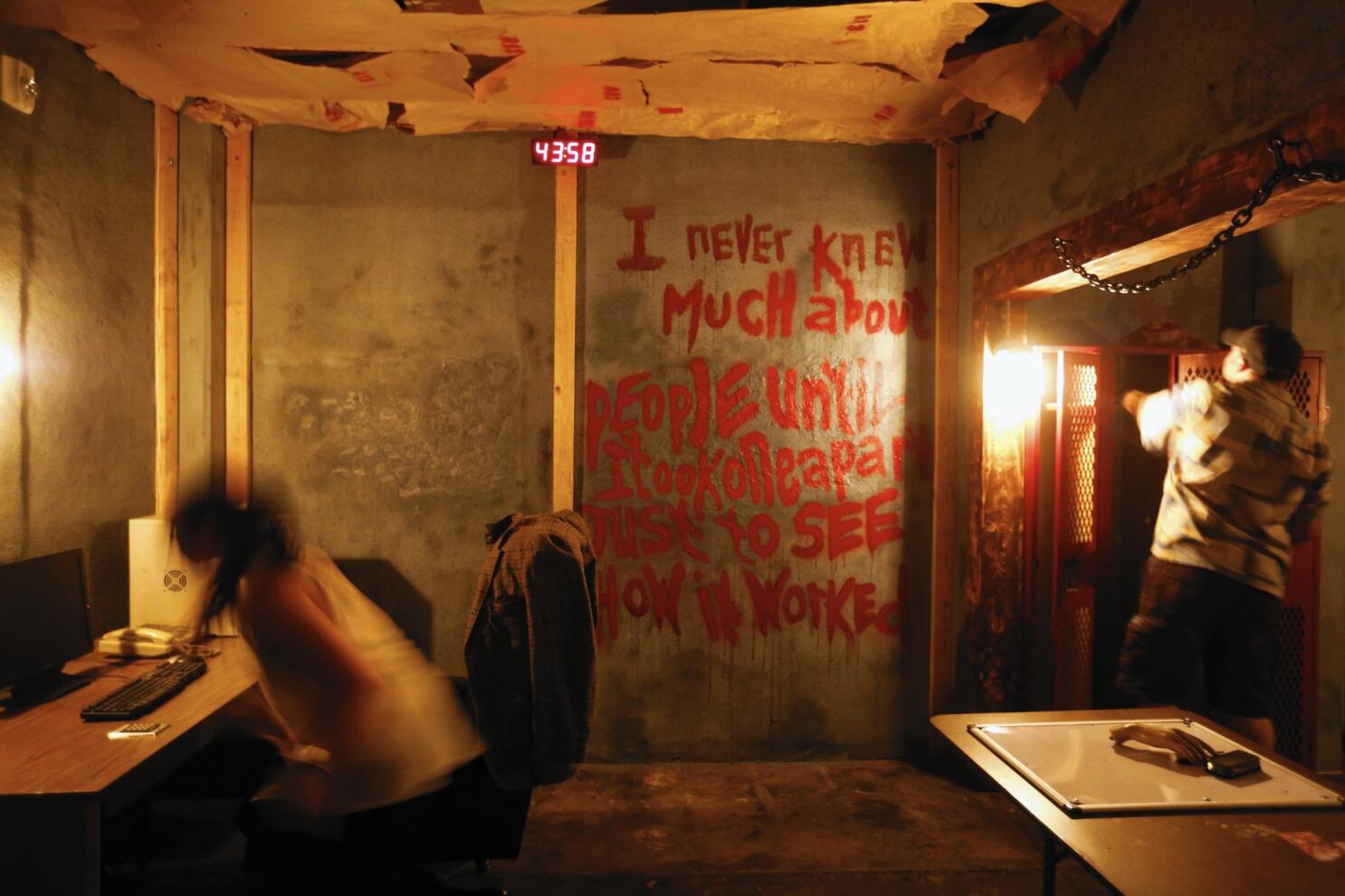Best Escape Room-- Test Your Abilities and Resolve the Enigma
Best Escape Room-- Test Your Abilities and Resolve the Enigma
Blog Article
Group Strategies: How to Work together Successfully in an Escape Room
Browsing the complexities of an escape room necessitates greater than plain enthusiasm; it needs a well-coordinated strategy grounded in clear communication, calculated duty tasks, and skilled time management. Groups have to proactively listen to every member's insights, assign duties that straighten with specific toughness, and preserve normal check-ins to make sure focus and stop redundancy. By cultivating a setting that values communication and flexibility, teams can considerably increase their effectiveness and success rates. The nuances of these approaches can transform the experience, however how exactly can they be applied to maximize the capacity for success?
Establish Clear Communication

To promote clear communication, it is important to mark a central point of get in touch with for information circulation. This function includes summing up searchings for and recommended methods to make sure everyone remains on the same web page. Furthermore, embracing a methodical technique to discussions can avoid chaotic exchanges. Short, concentrated updates from each group participant can keep the team informed without overwhelming them with information - best escape room.

Assign Duties Tactically
While clear interaction sets the foundation for effective team effort, appointing roles purposefully ensures that each staff member's toughness are made use of successfully. In a retreat area circumstance, the time-sensitive and complicated nature of obstacles demands an efficient method to job delegation. By recognizing and leveraging individual expertises, groups can enhance their analytic abilities and boost total efficiency.
Somebody with an eager eye for detail may stand out in finding covert objects, while a sensible thinker can be much better fit to fixing challenges. This role usually requires solid business and interpersonal abilities.
2nd, ensure that functions are flexible and adaptable. As brand-new challenges emerge, the team needs to be able to pivot, reallocating tasks as needed. This versatility assists preserve energy and prevents bottlenecks that can take place as a result of inflexible duty projects.
Inevitably, a critical approach to duty assignment not only takes full advantage of the strengths of each team member however additionally cultivates a natural atmosphere, driving the team in the direction of an effective escape.
Make Use Of Diverse Abilities
Acknowledging and using the diverse abilities within your team can dramatically elevate your efficiency in an escape room. Each staff member brings special toughness to the table, and efficiently leveraging these abilities can accelerate analytic and enhance general efficiency. A team participant with strong logical abilities may stand out at understanding complicated codes or patterns, while one more with keen empirical capabilities might swiftly find surprise hints that others may forget.
Motivate team participants to articulate their understandings and concepts immediately, making sure that all potential services are taken into consideration. Additionally, designating jobs that straighten with each check over here participant's strengths can avoid bottlenecks and make sure that development is constant.
Moreover, variety in skills frequently converts to diversity in thinking styles, which is indispensable in an escape space setup. While some obstacles might need rational reasoning and accuracy, others might gain from creative and association of ideas. By recognizing and leveraging this diversity, groups can resolve a broader variety of difficulties better, thereby raising their possibilities of an effective getaway.
Manage Time Effectively

Recognize visible puzzles and split jobs based on team participants' staminas, guaranteeing that no one is idle. This method can aid maintain the team focused and prevent time from slipping away unnoticed.
Furthermore, stay clear of one-track mind. If a problem is taking as well long, rotate group participants or relocate on to another challenge, returning later on with fresh perspectives. Communication is paramount-- keep everybody updated on solved challenges and continuing to be tasks to stay clear of redundant efforts.
Lastly, utilize any kind of tips or ideas sparingly however tactically - best escape room. official source Knowing when to ask for aid can conserve important time. By adhering to these time monitoring concepts, groups can considerably improve their possibilities of an effective and delightful getaway room experience
Debrief and Reflect
Reflection is a crucial aspect of group development and renovation in the context of retreat spaces. When read this post here the challenge is finished, whether effectively or not, it is critical for the group to participate in a structured debriefing session. This process permits group participants to assess their efficiency, determine staminas, and pinpoint locations for enhancement.
Start the debrief by reviewing what went well. Highlight details instances of efficient interaction, analytical, and collaboration. Acknowledging these favorable actions enhances them and motivates their rep in future challenges.
Talk about moments of complication, miscommunication, or ineffective approaches. Encourage an open and positive dialogue where group members can share their perspectives without concern of criticism.
Verdict
To conclude, successful cooperation in a retreat space is asserted upon clear communication, tactical duty tasks, the effective application of varied abilities, and efficient time monitoring. Normal check-ins and structured debriefings are important for keeping emphasis and fostering continual renovation. By producing a cohesive and flexible group atmosphere, the chance of successfully resolving problems and accomplishing the purpose of leaving the space is substantially boosted. This strategy not only ensures success but additionally promotes collective development and knowing.
Report this page